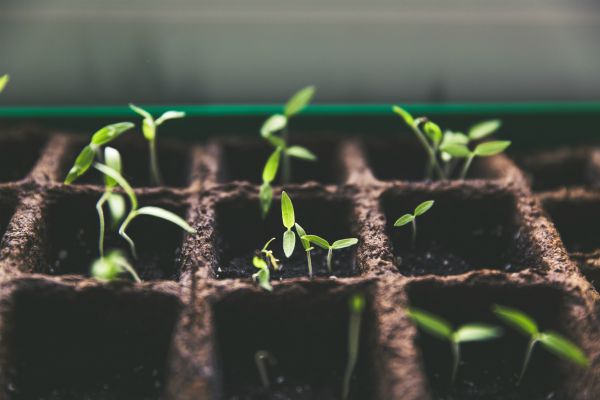Have you ever wondered if there are particular habits of happy people? Most of us are familiar with habits of healthy people—things like sleeping more hours than you Netflix, occasionally favoring water over caffeine, and remembering vegetables every now and then. But what about those rare individuals who are just better at being joyful? What kinds of things are they doing that we’re not?
We know that everyone has different things that make them happy, but hear us out. Whether you prefer rose ceremonies or big games, going out or staying in, traveling or collecting, research shows that there are some unifying threads between the habits of the happiest among us. Ready to find out what they are?
Research-Backed Habits of Happy People to Try Now
Let’s take a look at three habits of happy people, dig into what the science says about why they work, and show you how to use them for a happier life right now. And worry not, there’s no reason to be intimidated. These are easy ways to create more contentment; you might be doing them already. Impressive.
1. Have a real conversation

How many times a day do you find yourself talking about the weather or having a “fine, how are you?” conversation? One time is too many times, right? If you think these conversations are tiring, cliché, and happiness-crushing, there’s good news—research says that you’re right. Skipping the small talk for more substantive conversations is one habit of happy people you can adopt.
Researchers at the University of Arizona eavesdropped on college students and found that people who scored high on both self-reported happiness and various well-being measures had twice as many substantive conversations than unhappy participants. By their measures, a social life where you really connect with others is a happier life.
Not one to throw out your life story in a check-out line? You don’t need to share your deepest secrets in every conversation to make this work. A substantive conversation isn’t as terrifying, or revealing, as it might sound. It can center around anything from current events to your thoughts on a new book. Still not with us? Try adding just one substantive conversation a day. Fifteen minutes. The topic is ultimately up to you, but there’s a lot of great stuff on our blog that could spark a chat. Just saying.
2. Your crowd matters to your happiness (and theirs)

Think about your friends and the other people you spend time with. Are they generally happy? If not, you might want to consider finding some happier people to hang out with. According to research, surrounding yourself with happy people can make you happier as well.
K, we know it’s not that simple and that no one is 100 percent happy 100 percent of the time. But the trends matter. Here’s why.
- Happiness is “contagious” over both short and long periods of time. A study of over 4,700 people, for example, found that a person with at least one happy direct connection (friend, significant other, family member) was 15.3 percent more likely to be happy than someone without a happy direct connection. That’s kind of a big deal.
- Another study found that while both good and bad moods spread among friend groups, the effect of other’s good moods is particularly strong. In fact, having more friends who are happy can actually take people from depressed to not depressed.
Happy people cluster together, so look around. You don’t have to cut anyone out of your life, but lean into your upbeat friends and keep ’em close. Make regular plans and focus on actual face time—there are added bonuses if they live close to you. We bet they’ll be happy to hear from you. And you’ll be happier because of it. Win-win.
3. Give a little time for a lot of happy

Have you ever helped out a friend with something and noticed that you immediately felt a little more cheerful? You’re not imaging things (at least not this particular thing)—helping others is another habit of happy people. While even small acts of helping can improve happiness, why not take it a step further and make it a regular thing? Research shows that volunteering regularly can help improve your happiness.
A review of 40 papers on the effects of volunteering found that people who volunteer can experience less depression and higher well-being and life satisfaction than people who don’t volunteer. But there’s a caveat: It has to fit into your life without feeling like another obligation. If volunteering becomes another burden on your time, it can lead to burnout and negate the positive effects.
With that in mind, start small with volunteering. You can try a one-day event—like sorting food at a food bank or cleaning up a park—and go from there. The key here is to choose something you actually enjoy to help make sure that you get the happiness benefits and not the burnout.
Not sure where to start? Try Volunteer Match. You give the details, like what you’re interested in, where you’re located, and how much time you have, and the site provides local opportunities that match. Select the ones that fit your life best and get your giving on.
Try one and see how high your happiness can go
See? The habits of happy people aren’t drastically different from the habits most of us already have—they’re just turned up a notch. Yours can be too. Just remember to…
- Turn your convos into chances for connection
- Keep your social scene joyful
- Find a way to give some of your time, talents, and energy to the community around you
Last of all, we know that creating a new habit can be tough, so focus on mastering one before you try the next. Then savor your good feels and keep it going.
Your turn: Which of these habits of happy people are you most likely to try? Got a happiness habit that didn’t make our list? We want to hear about it.
If you like this article, you’ll also like The Science of Happiness: How to Focus on Friendships
Author: Erica Hersh
Erica Hersh is a health writer, editor, and communications strategist based in Boston, MA. In 2014, she fulfilled her lifelong dream of being on Jeopardy. She did not, however, fulfill her dream of winning on Jeopardy.

Let Us Know What You Think